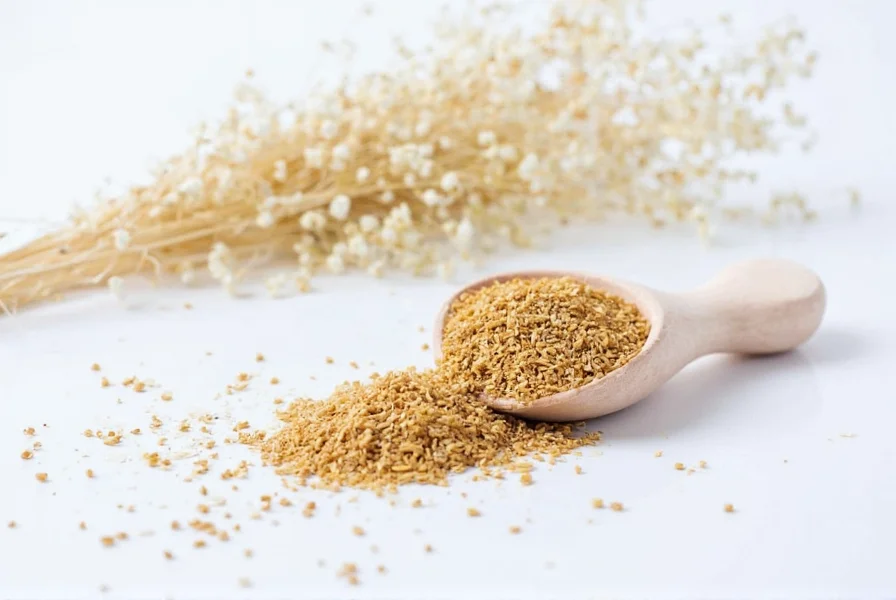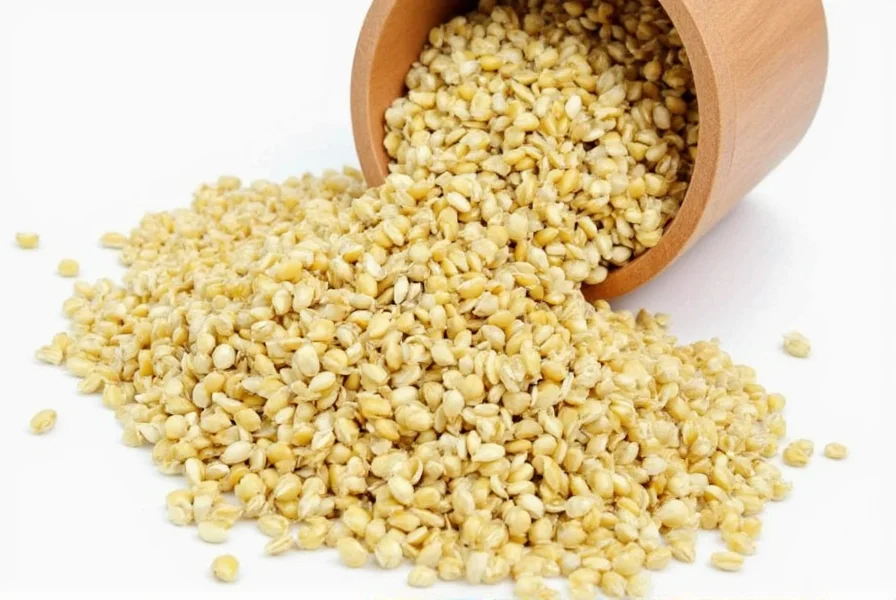Fenugreek (Trigonella foenum-graecum) has gained attention as a potential natural approach for managing metabolic health concerns. This ancient medicinal herb, commonly used in traditional Ayurvedic and Middle Eastern medicine, contains bioactive compounds like fiber-rich galactomannans, saponins, and 4-hydroxyisoleucine that may influence lipid metabolism and pancreatic function. Understanding what scientific evidence actually supports—and what remains theoretical—is crucial for making informed decisions about fenugreek supplementation.
Understanding Fenugreek's Impact on Triglyceride Levels
Triglycerides, a type of fat circulating in your bloodstream, become problematic when levels exceed 150 mg/dL. Elevated triglycerides contribute to cardiovascular risk and often accompany metabolic syndrome. Fenugreek's potential triglyceride-lowering effects appear connected to several mechanisms:
- Fiber content: Fenugreek seeds contain 20-30% soluble fiber, which may reduce fat absorption in the gut
- Saponins: These compounds might inhibit cholesterol synthesis in the liver
- Improved insulin sensitivity: Better blood sugar control indirectly supports healthier lipid metabolism
- Antioxidant effects: May reduce oxidative stress contributing to lipid abnormalities
A 2021 meta-analysis published in Nutrition Reviews examined 12 clinical trials involving 648 participants. Researchers found fenugreek supplementation produced an average triglyceride reduction of 19.3% compared to placebo, with more significant effects observed in individuals with type 2 diabetes. However, study durations were typically 8-12 weeks, and longer-term data remains limited.
| Study | Participants | Dosage | Duration | Triglyceride Change |
|---|---|---|---|---|
| Sharma et al. (2019) | 85 with T2D | 10g seed powder/day | 12 weeks | ↓ 24.7% |
| Rao et al. (2020) | 60 metabolic syndrome | 5g extract (50% fiber) | 8 weeks | ↓ 15.2% |
| Al-Hindawi et al. (2018) | 40 prediabetic | 6g seed powder/day | 6 weeks | ↓ 18.9% |
| Meta-analysis (2021) | 648 total | 5-10g/day | 8-12 weeks | ↓ 19.3% average |
Fenugreek and Pancreatic Function: Separating Fact from Hype
When examining fenugreek supplement to improve pancreatic activity, it's essential to distinguish between different aspects of pancreatic function. The pancreas has both endocrine functions (insulin and glucagon production from beta and alpha cells) and exocrine functions (digestive enzyme production). Research primarily focuses on fenugreek's impact on endocrine function rather than overall pancreatic activity.
Multiple studies indicate fenugreek may support pancreatic beta-cell function in type 2 diabetes. A 2022 randomized controlled trial in Diabetes Research and Clinical Practice found participants taking 5 grams of fenugreek seed powder daily showed 27% greater C-peptide levels after 12 weeks compared to placebo, suggesting improved insulin production capacity. The herb's 4-hydroxyisoleucine component appears to stimulate insulin secretion directly from existing beta cells.
However, evidence for fenugreek significantly increasing overall pancreatic enzyme output (amylase, lipase, protease) is minimal. Most research focuses on blood sugar outcomes rather than comprehensive pancreatic function. The connection between fenugreek supplement to increase pancreatic activity often gets oversimplified in popular health discussions.

Optimal Dosage and Practical Considerations
Based on current evidence, effective fenugreek supplementation for triglyceride management typically involves:
- Seed powder: 5-10 grams daily, divided into 2-3 doses with meals
- Standardized extract: 500-1,000 mg containing 50% fiber, taken 2-3 times daily
- Soaked seeds: 1-2 tablespoons of seeds soaked overnight in water
Maximum benefits for triglyceride reduction typically appear after 8-12 weeks of consistent use. For those exploring fenugreek supplement to reduce triglycerides naturally, combining supplementation with dietary changes (reducing refined carbohydrates and sugars) yields better results than supplementation alone.
Safety Profile and Important Precautions
Fenugreek is generally well-tolerated at recommended doses, but potential side effects include:
- Gastrointestinal discomfort (bloating, gas) in 15-20% of users
- Maple syrup-like body odor (harmless but noticeable)
- Potential hypoglycemia when combined with diabetes medications
- Rare allergic reactions, particularly in those sensitive to legumes
Individuals taking blood thinners, diabetes medications, or with peanut/chickpea allergies should consult healthcare providers before using fenugreek. Pregnant women should avoid therapeutic doses due to potential uterine stimulation effects. When selecting products, look for third-party tested supplements to ensure purity and accurate labeling—a critical consideration for anyone using fenugreek supplement for triglyceride management.

Realistic Expectations and Complementary Approaches
While fenugreek shows promise as part of a comprehensive approach, it shouldn't replace conventional treatments for significantly elevated triglycerides (above 500 mg/dL). For those investigating fenugreek supplement to reduce triglycerides and support pancreatic health, consider these evidence-based complementary strategies:
- Omega-3 fatty acids: 2-4 grams of EPA/DHA daily can reduce triglycerides by 25-30%
- Niacin: Prescription forms can lower triglycerides by 20-50%
- Lifestyle modifications: Regular exercise and reducing added sugars provide foundational support
- Medical supervision: Essential for monitoring progress and adjusting treatments as needed
The most effective approach for managing triglycerides and supporting pancreatic function combines evidence-based supplementation with lifestyle modifications under medical supervision. Fenugreek may offer modest benefits as part of this comprehensive strategy, particularly for individuals with mild to moderate elevations.
Conclusion
Current research suggests fenugreek supplementation may provide modest support for triglyceride reduction and pancreatic beta-cell function, particularly in individuals with type 2 diabetes or prediabetes. However, effects are generally moderate, requiring consistent use over several weeks to notice benefits. The evidence for fenugreek supplement to increase pancreatic activity broadly is limited—its primary benefit appears related to insulin production rather than overall pancreatic function. As with any supplement, individual responses vary, and medical guidance remains essential, especially when addressing metabolic health concerns.
Frequently Asked Questions
How long does it take for fenugreek to lower triglycerides?
Most clinical studies show measurable triglyceride reductions after 8-12 weeks of consistent fenugreek supplementation at doses of 5-10 grams daily. Maximum benefits typically appear around the 12-week mark, though individual responses vary based on baseline levels, diet, and other factors.
Can fenugreek replace prescription medications for high triglycerides?
No, fenugreek should not replace prescribed triglyceride-lowering medications, especially for levels above 500 mg/dL. While it may provide modest support as part of a comprehensive approach, prescription medications like fibrates or prescription-strength omega-3s produce significantly greater reductions. Always consult your healthcare provider before making changes to prescribed treatments.
Does fenugreek directly stimulate the pancreas to produce more enzymes?
Current evidence doesn't support fenugreek significantly increasing overall pancreatic enzyme production (amylase, lipase, protease). Research primarily shows it may support pancreatic beta-cell function related to insulin production, particularly in type 2 diabetes management. The connection between fenugreek supplement and general pancreatic activity is often overstated in popular health discussions.
What's the most effective form of fenugreek for triglyceride reduction?
Whole seed powder (5-10 grams daily) appears most effective for triglyceride management based on clinical evidence. Standardized extracts containing at least 50% fiber may also work, but whole seeds provide the complete spectrum of bioactive compounds. Avoid de-fatted extracts if your primary goal is triglyceride reduction, as they remove beneficial lipid-modulating components.
Are there specific dietary considerations when taking fenugreek for triglycerides?
Yes, taking fenugreek with meals enhances its lipid-modulating effects. For optimal results with fenugreek supplement to reduce triglycerides, pair it with a diet low in refined carbohydrates and added sugars while increasing omega-3 rich foods. Avoid high-fat meals immediately after taking fenugreek, as this may reduce its effectiveness for triglyceride management.











 浙公网安备
33010002000092号
浙公网安备
33010002000092号 浙B2-20120091-4
浙B2-20120091-4